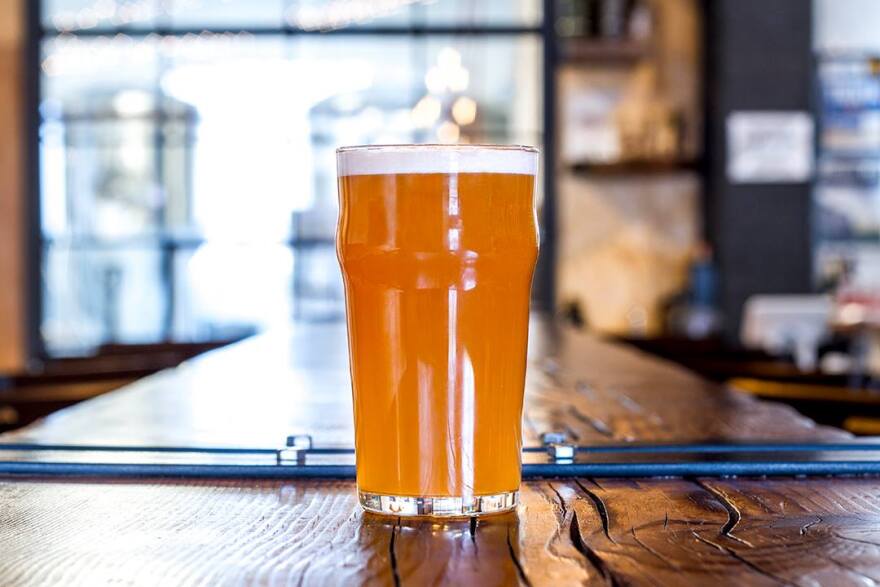Since 1988, Idaho’s excise taxes on so-called ‘strong beer’ - beer more than 4% alcohol by weight - have funneled into the same pot as taxes on wine.
Most of that combined revenue goes into Idaho’s general fund, with portions carved out for substance abuse prevention and the state’s permanent building fund. Since 1994, a portion of those taxes helped fund the Idaho Wine Commission. As more Idaho breweries opened - many of them producing only beers above the 4% alcohol by weight (5% alcohol by volume) threshold - an increasing amount of beer-based taxes went to fund promotion of wine.
“Based on their legal statutes,” Idaho Brewers United Executive Director Sheila Francis said of the state Wine Commission, “they weren't able to promote anything but Idaho grape-based products. So, not really fair.”
IBU as it’s known (a nod to the acronym for beer’s bitterness measurement index) is the state’s brewer’s guild and lobbying group.
There are currently 83 operating breweries in Idaho. Francis said as more and more breweries opened over the last decade, nearly half the tax revenue allocated to the Wine Commission came from beer production.
“It was a significant chunk of change,” Francis said. “About $140,000-$150,000 annually.”
Over the last five-plus years, IBU has been brewing up a compromise to reclaim that money.
Lawmakers this session agreed to send those funds to the Idaho Hop Growers Commission to help promote Idaho suds.
“It is a win-win for all parties involved,” said Candi Fitch, Executive Director of the Idaho Hop Commission. “It’s going to be a great experience and we’re happy the change was made. We think that beer and hops go so well together; it will be fun doing the beer promotion.”
Fitch said they don’t know how they’ll use the funds yet; only that it will be to promote Idaho beer.
To make up for the shifted funding, the Wine Commission now gets a greater percentage of taxes from Idaho-made wine, revenue previously destined for the state general fund.
On paper, Wine Commission Director Moya Dolsby expects less funding than before. Because the rule just changed this month, she doesn’t know exactly how much.
“We did all the projections, and so we think that we were all going to be down $25,000,” she said. “But these are all projections. I’m just trying not to spend any money.”
Pandemic cancelations of the Wine Commission’s largest annual event, Savor Idaho, cost the group $200,000, she said. That missing event revenue forced a staff reduction, but Dolsby hopes to rebound, as wine sales in Idaho - both state produced and imported - have stayed strong.
Dolsby added that tax revenue funding the Idaho Wine Commission has steadily increased about 2-4% annually for years.
Now, because Idaho wine production isn’t likely to substantially increase without additional grape imports from Washington State or an increase in the number of acres of grapes planted in Idaho, this change will likely level off that revenue source.
"Am I disappointed to lose money," Dolsby said. "but it wasn't really it wasn't our money to be had. We were just the beneficiary of it for so long."
The new law phases in the revenue shift over three years. It also updated specifications to meet modern standards, like switching from 'alcohol by weight' to 'alcohol by volume,' a much more common measurement.



